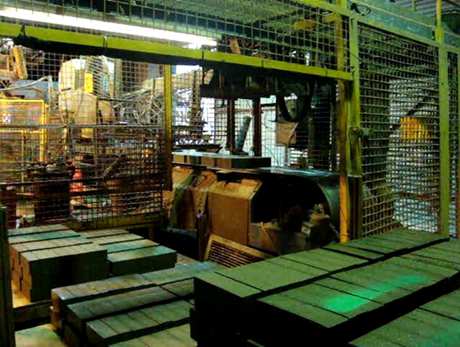
Research into soil-based construction is being carried out by Professor John Kinuthia of the University of South Wales (USW).
The Professor of Innovation and Engagement in Civil Engineering, who is Head of USW’s Advanced Materials Testing Centre (AMTeC), is looking into the development of sustainable building and construction materials which use natural, industrial, and agricultural waste, and other by-product materials.
Soil has immense potential in sustainable construction, not only due to its abundance and low cost, but also its ability to work in a close synergy with a variety of natural, industrial, and agricultural waste streams.
Industrial trials at brick-making plants at Bedfordshire, and Ewenny, near Bridgend, have already demonstrated the feasibility of industrial-scale production of unfired clay bricks.
And there are applications for the technology across in the globe.
In the UK, soil-based materials developed at USW have been considered for use in a wide range of high-impact projects, including as foundation layers for high-profile projects such as HS2.
Further afield, deployment of soil-based novel materials has been carried out as part of UNESCO-backed field trials in Kenya and Cameroon.
Funding by Kenya’s Academy of Medical Sciences, as part of the country’s Vision 2030, is supporting projects which will support the provision of large-scale low-cost social housing for urban populations.
While, in Cameroon, the initial funding by UNESCO has helped in the development of code of practice and standards for soil-based materials.
These projects in Africa are showing how developing countries can make real progress towards sustainable infrastructural development by utilising agricultural waste from, among others crops, the growing of coffee, sugarcane, rice, and palm oil.
The technology also helps developed countries to diversify approaches towards meeting the Kyoto Protocol emission targets by utilising industrial waste streams, such as from the manufacture of steel, recycling of aluminium, and burning of coal.
Profesor Kanuthia’s work has already achieved recognition, including the Royal Society Brian Mercer Award for Innovation on unfired clay systems, from The Academy of Medical Sciences via the by the Global Challenges Research Fund (GCRF), and through AMTeC securing accreditation from the United Kingdom Accreditation Service (UKAS).
“This further validates research at USW in its contribution towards the addressing of global challenges, and enthuses research in both developed and developing nations,” Prof Kinuthia said.
“It has also raised the profile of the soil-technology and Civil Engineering at USW, and brought it to an international stage.”




